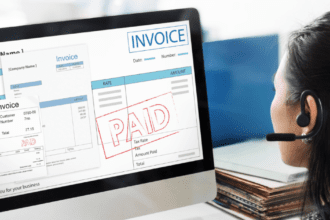Owning a business means you are responsible for limiting risk to your clients, visitors, and employees. You are liable for damage caused by your product or service, your team members, or an accident that occurs on your premises. Litigious people will seek compensation for medical expenses, financial loss, harassment, and more.
To reduce your vulnerability to potential lawsuits, consider implementing the following practices. Being prepared today could protect you from a detrimental lawsuit tomorrow.

1. Using a Secure Cloud Database
Most businesses store the personal information of their employees and their customers. Some businesses will have more sensitive information than others, but nonetheless, it is the responsibility of the business to protect the data.
If your business is broken into or your computer records are compromised, thefts could obtain social security numbers, financial records, phone numbers, and addresses. Your business will be liable for the loss of this information.
To prevent this, use a secure online cloud database that will protect against cyber attacks and remove the threat of physical files. Your database can be customized to fit your business’ specific storage and security needs.
2. Comprehensive Insurance
Without proper insurance coverage, a lawsuit could lead to bankruptcy and the loss of your company. Be sure to discuss all potential risks with your insurance agent to obtain the most comprehensive coverage.
If you are sued, your insurance company will act as your defense. They provide an attorney and pay out the agreed settlement.
The most common types of liability protection include:
- Commercial general liability
- Professional liability (also known as errors & omissions coverage)
- Cyber liability
- Directors & officer’s liability
- Product liability
- Commercial auto insurance (if you or employees use a vehicle for business)
3. Posted Signs and Cameras
It is estimated that 90% of businesses are sued at least once. So you need to get in front of any potential problems.
If you have an on-premise business where employees, customers, or clients meet, it is essential to post warning signs. Warning signs and disclaimers, such as ‘wet floor’ and ‘watch your step’ can be used in your defense if an incident happens on your premises.
Also, consider cameras that can be referred back to in the case of an incident. This will protect you from litigious people embellishing or staging accidents.
4. Be Mindful of Potential Hazards
As a business owner, it is crucial to evaluate yourself and your business for potential risks to prevent them. Ask yourself, could someone hurt themselves in this place or doing this activity? And how are employees and customers being treated?
Be mindful of potential risks or hazards present in your business. The easiest way to get sued is to never know there was a risk in the first place. When you identify a potential risk or hazard, take the necessary steps to prevent it or reduce its exposure.
5. Train Employees
Your employees represent you and your business. If their neglect leads to a lawsuit, it could fall under your responsibility. The most effective way to avoid this is thorough and proper safety training.
Include safety materials in your new employee onboard training and complete annual or quarterly safety reminders. Something as simple as an employee cleaning up a wet floor and then displaying a wet floor sign could prevent an injury and save you from years of litigation.
Final Thoughts
The stress and the financial threat from a lawsuit can be avoided with the proper protection in place. Investing in these actions will put you in a stronger position to avoid legal action and defend against it more successfully.








